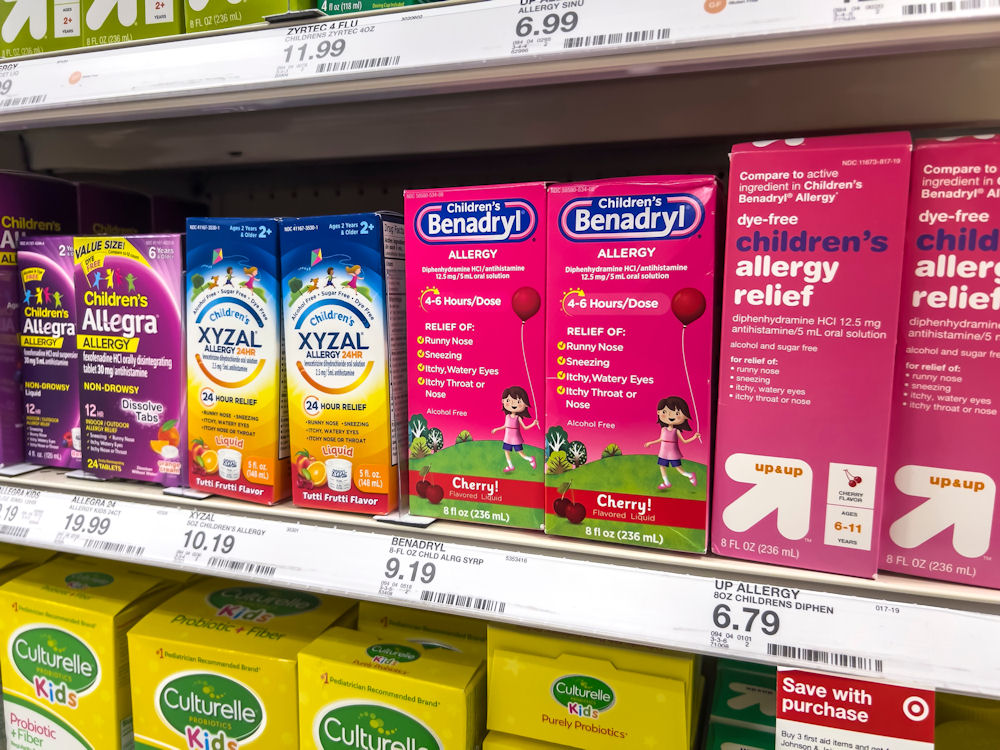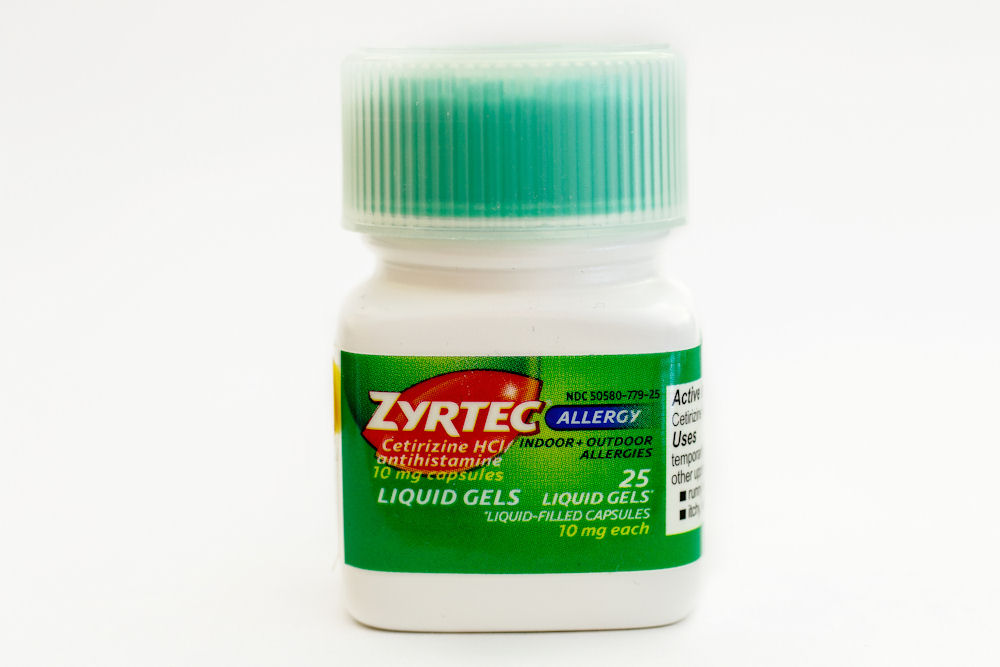Mixing Zyrtec (cetirizine) with alcohol can be dangerous. Both substances affect the central nervous system and, when combined, their sedative effects are amplified. Zyrtec can cause drowsiness and dizziness, while alcohol is a depressant that slows brain function.
Together, these medications can lead to increased drowsiness, impaired coordination, and difficulty concentrating, which can be hazardous, especially when driving or performing tasks that require focus. Additionally, both alcohol and Zyrtec can cause dehydration, leading to headaches and fatigue. For safety, it’s best to avoid drinking alcohol while taking Zyrtec.
At Laguna Shores Recovery in Dana Point, California, we educate individuals on the dangers of polysubstance abuse and provide treatment programs and resources to promote long-term recovery.
Understanding Zyrtec
Zyrtec (cetirizine) is an antihistamine that relieves allergy symptoms like sneezing, runny nose, and itchy eyes. It works by blocking histamine, a substance produced during allergic reactions. While less sedating than older antihistamines, Zyrtec can still cause drowsiness in some people and should be used as directed.
What is Zytec, and Why Do People Take It?
Zyrtec, the brand name for cetirizine, is an antihistamine medication commonly used to relieve allergy symptoms. It effectively treats seasonal allergies (hay fever) and perennial allergic rhinitis, which can cause sneezing, a runny or itchy nose, and watery eyes. Zyrtec works by blocking the action of histamine, a substance in the body that triggers allergic reactions.
People take Zyrtec to alleviate the discomfort and disruption caused by allergies, especially during peak pollen seasons or when exposed to allergens like dust mites or pet dander. Its fast-acting formula offers relief within an hour and can last for up to 24 hours, making it a popular choice for individuals seeking a practical solution for their allergy symptoms. Additionally, Zyrtec is available in various forms, including tablets and liquid, catering to different preferences and needs.

What Are the Side Effects of Zyrtec and Alcohol?
Combining Zyrtec and alcohol can enhance drowsiness and impair cognitive functions, leading to increased sedation. Other potential side effects may include dizziness, dry mouth, and difficulty concentrating. It’s essential to avoid or limit alcohol intake while taking Zyrtec to minimize these risks and ensure effective management of allergy symptoms.
What Does Mixing Zyrtec With Alcohol Do to Your Body?
Mixing Zyrtec (cetirizine) with alcohol can have harmful effects on your body. Both substances can cause sedation, and when combined, their effects are amplified. Zyrtec can cause drowsiness and impaired concentration, while alcohol is a depressant that slows brain function. Together, they can lead to severe drowsiness, dizziness, and poor coordination, increasing the risk of accidents and injuries.
Additionally, both alcohol and Zyrtec can contribute to dehydration, causing symptoms like headaches and fatigue. The combination may also strain the liver, which processes both substances. To stay safe, it’s best to avoid drinking alcohol while taking Zyrtec.
Can You Mix Zyrtec and Alcohol?
Mixing Zyrtec and alcohol is not advisable, as it can enhance drowsiness and impair cognitive function. This combination may lead to increased sedation, dizziness, and difficulty concentrating. To ensure effective allergy management, it’s best to avoid or limit alcohol intake.

Is It Safe To Take Zyrtec With Alcohol?
It is not recommended to take Zyrtec (cetirizine) with alcohol. Both substances can cause sedation and dizziness, and when combined, their effects are amplified. This increases the risk of drowsiness, impaired concentration, and slowed reflexes, making activities like driving or operating machinery dangerous. Additionally, alcohol can cause dehydration, and Zyrtec can contribute to dry mouth and eyes, worsening these effects. Mixing the two can also strain the liver, which processes both alcohol and medications, potentially leading to liver damage over time. It’s best to avoid alcohol while taking Zyrtec to ensure safety and well-being.
Is Zyrtec Addictive?
Zyrtec, an antihistamine used to relieve allergy symptoms, is not considered addictive. It does not produce cravings or withdrawal symptoms typically associated with addictive substances. However, some users may develop a psychological reliance on its effects for allergy relief. Always consult a doctor for guidance on long-term use.
Understanding alcohol involves recognizing its effects on the body and mind. It’s a psychoactive substance that can lead to both short-term relaxation and long-term health issues, including addiction. Responsible consumption is crucial, as excessive intake may impair judgment and lead to physical and mental health problems. Always prioritize moderation and informed choices.
Acute effects of alcohol include lowered inhibitions, impaired coordination, and altered judgment. Users may experience feelings of euphoria or relaxation, but nausea, dizziness, and fatigue can also occur. High consumption may lead to intoxication, affecting speech and motor skills, increasing the risk of accidents, and having negative consequences. Always drink responsibly.
Alcohol addiction poses significant dangers, including physical health issues like liver disease, heart problems, and increased cancer risk. It can lead to mental health disorders, relationship strain, and loss of employment. Additionally, it heightens the risk of accidents and injuries and can result in legal troubles. Seeking help is crucial.
Mixing Zyrtec with alcohol can increase the risk of sedation and impairment. While Zyrtec is not typically associated with overdose, excessive consumption of either substance can lead to harmful effects. It’s crucial to consult with a healthcare professional before combining medications and alcohol to ensure safety and avoid adverse reactions.
Drug and Alcohol Addiction Treatment at Laguna Shores Recovery
Laguna Shores Recovery offers a comprehensive range of services designed to support individuals struggling with drug and alcohol addiction. Whether the need is for detox, inpatient residential care, or outpatient treatment, the center’s holistic approach ensures each client receives the appropriate care to address their specific needs.

The first step in addiction recovery is medical detoxification, a medically supervised process that helps individuals safely withdraw from drugs or alcohol. At Laguna Shores Recovery, detox is conducted in a supportive and controlled environment to manage withdrawal symptoms and minimize discomfort. Detox is a crucial first step in breaking the cycle of addiction, allowing the body to rid itself of toxins before moving on to deeper therapeutic work. The detox program is personalized, ensuring that each individual receives the medical and emotional support they need during this difficult phase.
For those needing a more intensive treatment option, Laguna Shores Recovery offers inpatient rehab or residential treatment programs. This immersive program provides clients with 24/7 care in a structured environment, ensuring they are supported throughout their recovery process. Inpatient care allows individuals to focus solely on healing, away from the triggers and stressors of daily life. During residential treatment, clients participate in individual therapy, group counseling, and educational sessions, all aimed at helping them understand the root causes of their addiction, develop healthy coping mechanisms, and learn how to manage triggers. Inpatient treatment offers a safe, supportive space for individuals to start their recovery journey.
Laguna Shores Recovery also provides an Outpatient Treatment Program (OP), which is suitable for those who can live at home but still require structured treatment to overcome their addiction. This program offers flexibility, allowing clients to attend therapy sessions during the day or evening while maintaining their responsibilities at home or work. OP treatment typically involves individual counseling, group therapy, and educational workshops. This level of care is often ideal for individuals who have already completed a more intensive program or those with a less severe addiction that can be managed on an outpatient basis.
The Partial Hospitalization Program (PHP) is a more intensive form of outpatient care for individuals who need more support than what is provided in traditional outpatient programs but don’t require round-the-clock supervision. PHP offers a structured schedule that includes therapy, education, and skill-building activities during the day, with clients returning home in the evening. This program provides a balance of support and flexibility, allowing individuals to continue their treatment while living outside of a residential facility. It’s often used as a step down after inpatient care or for individuals with significant addiction issues, but not requiring full inpatient treatment.
The Intensive Outpatient Treatment Program (IOP) at Laguna Shores Recovery is designed for individuals who need a high level of care but can continue to live at home. This program offers flexible treatment options that include frequent therapy sessions, both individually and in groups. Clients in IOP typically attend treatment multiple days a week, allowing them to focus on their recovery while maintaining other aspects of their lives. IOP is ideal for individuals transitioning from more intensive treatment or those with milder addiction that still requires professional care.
Seek Help in Case of Antihistamine Dependency or Alcohol Addiction
If you or someone you know is struggling with alcohol addiction or antihistamine dependency, seeking professional help is crucial. Both alcohol and antihistamine addiction can have serious physical, emotional, and psychological consequences. If you’re using substances like alcohol or medications such as antihistamines to cope with underlying issues or feelings, it’s important to reach out to a treatment center like Laguna Shores Recovery for the support and care you need. Our dedicated professionals can help you navigate your recovery journey through personalized treatment plans and offer ongoing support to ensure long-term success in sobriety.

 Matthew Beck B.A, M.A, LMFT
Matthew Beck B.A, M.A, LMFT 


